How Inuit honour the tradition of naming, and spirits who have passed on
Inuit believe spirits pass on through names, children can take on characteristics of namesakes
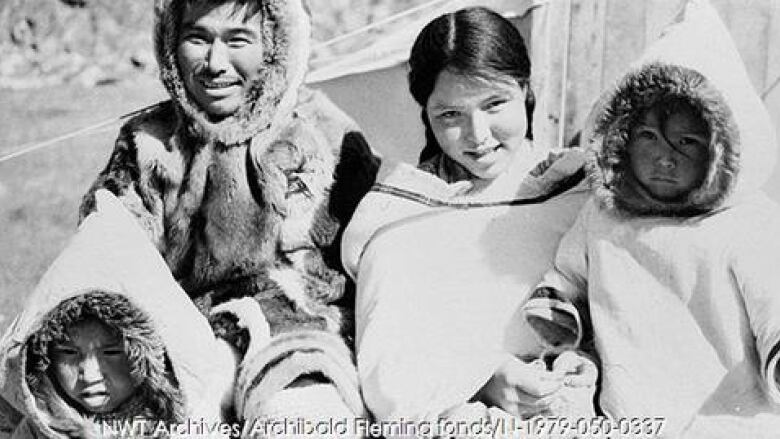
CBC North is doing a series on the history and significance of Inuit names. Traditional names hold great respect and honour. There are long-held Inuit beliefs that people take on the characteristics of their namesake, and that spirits live on through them. Many Inuit have close connections with the person who named them, as well as people who have the same name.
In Inuit culture, a name carries weight.
Inuit hold strong beliefs around how children are named and take great care in choosing a name for an infant. Traditionally, elders or parents namedchildren, often after blood relatives,revered leaders orhunters, or exceptional people.
Naming a child is a serious undertakingbecause"we must show absolute respect to the child and the person's name," said Millie Kuliktana, who was a consultant on the Nunavut school curriculum in the 1990s.
Traditional names can carry great responsibility, with the belief that children can share physical and personality traits with their namesakes.
"There are some things where a symbol shows up or an action, or sometimes a child would just say a phrase that takes the family by surprise," Kuliktana said.
"It would be the namesake coming out in that child."
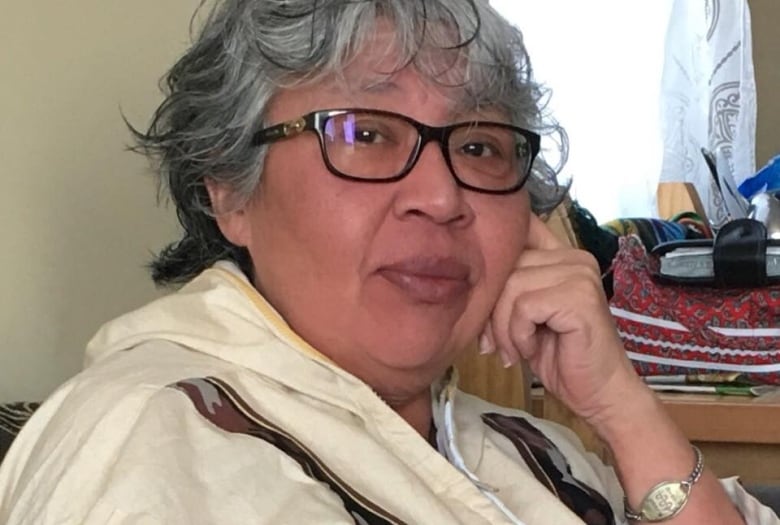
Kuliktana says there is often an expectation on a child to take on strong qualities, like a great hunter. She says families and elders help develop those characteristics in the child.
"On the negative side, an individual can feel that they are not living up to their name," she said.
"But then they're also reminded that we have to strive for what we can, and we can give it our best."
Spirit is passed on to a child
Naming is an "important institution," according to Inuuqatigiit, The Curriculum from the Inuit Perspective a 1996 document that was created as "an educational link between the past and the present."
One of the beliefs in the wide-ranging curriculum is that "a person never really dies, their spirit is passed on to a child."
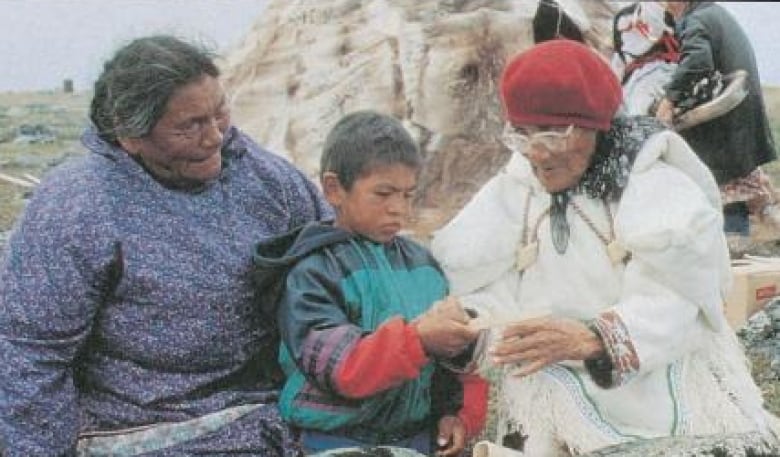
"That is so much practised today," said Kuliktana, whoconsulted on the curriculum for the Kitikmeot School Board. "It really helps the family heal in their grieving for the lost one."
In some cases, a parent or elder will have a dream about someone who has died, which is a sign of what to name the child.
In Kuliktana's community of Kugluktuk, Nunavut, it's believed that when a person dies, their spirit should have time to rest and cross over, and their name should also be given time "to rest before being reborn in someone else."
"So don't name the children after someone right away. You allow that person's spirit to pass for about a year before you use that name again," she said.

Kuliktana says children often have close connections with their namesakes, the person who named them, and with others who share that name.
Her daughter Adjiukak, for example, was named after "the most generous lady that lived" in Kugluktuk. She shares her name with 20 others, and Kuliktana says she has a "unique friendship" with them.
"It's such a beautiful thing with Inuit names," she said.
Naming landmarks can be disrespectful
Saa Pitsiulak, an Inuktitut language program officer with Nunavut's Department of Culture and Heritage, said waiting for a name to rest is a widely held belief among elders in the Kivalliq region, as well.
Pitsiulak says her department makes annual trips to the communities to interview elders about Inuit customs. She says they ask questions about naming infants who should do it, when it should happen, who should be consulted.
"Elders in the Kivalliq region made a pretty strong statement that they really respected their elders and their parents. So they waited for their parents to name their children," she said.
"It was not the parents' responsibility" to name their children.
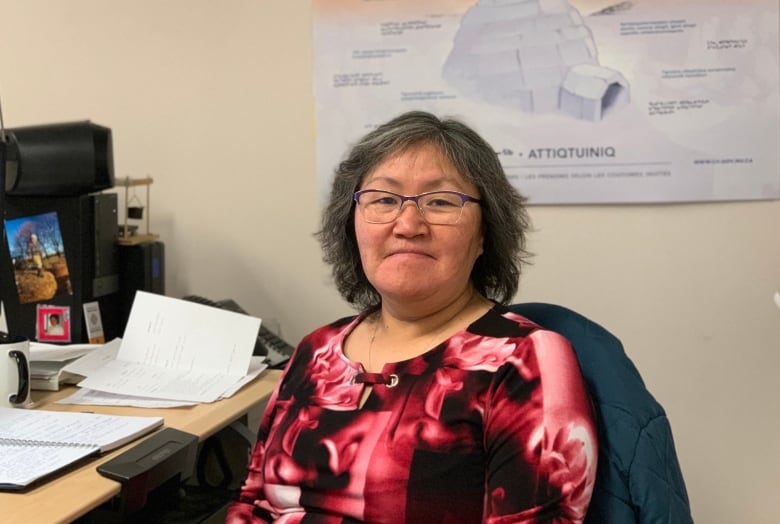
Pitsiulak says they're seeing more and more people giving their children non-Inuit names today.
In all of the regions, she said, elders "are very strong about keeping traditions alive" and say children should know their ancestors.
Elders in the Kivalliq have also spoken about community landmarks being named after people without consultation, she said.
"They felt it was being disrespectful to name such buildings or roads after people."
Wrong name can have consequences
It's saidthat a birthmark can appear on a child that is the same as their namesake's or that infants can become sickly if given the wrong name.
Kuliktana said she saw a sad example of that in the descendents of a woman named Qimniq. Qimniq was a woman, but both girls and boyswere given her name, as is common with Inuit names.
But Kuliktana says a high percentage of her male descendents passed on young.
"That made a flag for the family members that maybe Qimniq just wants to be a female," she said. "Maybe that name will only be given to women."
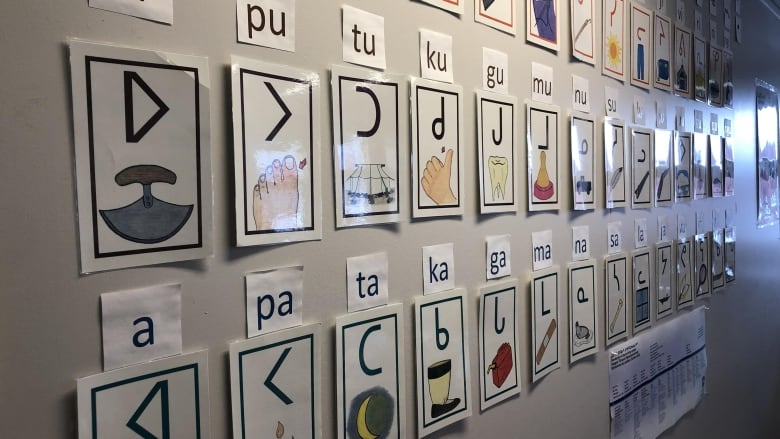
Inuit names don't always have meaning, though Kuliktana says some Inuit are given nicknames based on their personalities.
Her father, for example, was named Pigalak, but his nickname was Aqpaaq "the one who ran ahead."
Keeping traditions alive
Nunavut's Department of Education said the K-12 Inuuqatigiit curriculum is still used in the territory's schools today.
"It is a valuable resource for educators that is referred to often," a spokesperson said in an email. The naming module is part of the Grade 10 Inuktitut program.
The Culture and Heritagedepartment also sends resources,based on research and interviews, to Nunavummiut, schools, daycares and radio stations about Inuit customs and traditions, Pitsiulak said.
Kuliktana says she would like to see more parents sharing the importance of naming with their children. She says those conversations are lacking nowadays.
"We don't give names to people for the sake of naming them. We give them a name that we totally respect," she said.
"And you want that individual's spirit and being to continue to live with you in your society."












_(720p).jpg)


 OFFICIAL HD MUSIC VIDEO.jpg)
.jpg)



























































































